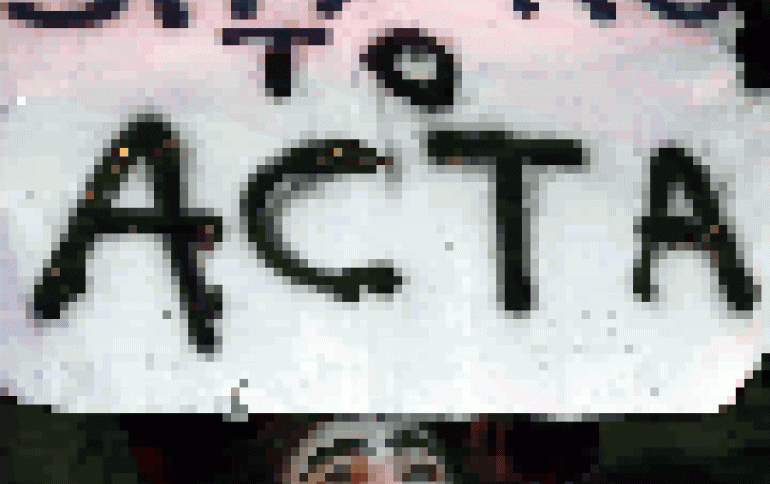
EU Parliament Voted Against ACTA
The European Parliament's International Trade Committee
on Wednesday decided against referring
Anti-Counterfeiting Trade Agreement (ACTA) to the
European Court of Justice for a ruling on its legality.
A proposal to recommend that the European Parliament
should refer the Anti-Counterfeiting Trade Agreement
(ACTA) to the EU Court of Justice was rejected by the
International Trade Committee, with 21 MEPs against , 5
in favour and 2 abstentions.
"The decision on ACTA is a political one and Parliament should keep control over its agenda," argued some members.
Rapporteur David Martin (S&D, UK), had asked the committee to vote on the question due to a perceived lack of support from other political groups within the House.
He also said that if the committee decided not to proceed with the referral recommendation, he would withdraw his initial proposal to prepare an interim report with questions to the European Commission and EU Member States on what steps they would take to implement ACTA.
After the vote, Mr Martin said he would adhere to the previously agreed timetable for parliament's recommendation on whether to say yes or no to ACTA.
Under the proposed ACTA deal, a country may "order an online service provider to disclose expeditiously to a right holder information sufficient to identify a subscriber whose account was allegedly used for infringement." Anti-ACTA activists said that this would be tantamount to forcing ISPs to become the unofficial police of the Internet.
It was this fear that prompted a widespread Stop ACTA campaign that saw thousands of protesters take to the streets across Europe in recent months and caused many E.U. member states to delay or rule-out ratification, despite signing the deal individually in Japan in January.
According to the previously agreed timetable, at the next committee meeting, on 25-26 April Mr Martin will present his recommendation as to whether EP should say yes or no to ACTA.
The final International Trade Committee vote is scheduled for 29-30 May, and Parliament as a whole is to vote on the issue at its June plenary session.
"The decision on ACTA is a political one and Parliament should keep control over its agenda," argued some members.
Rapporteur David Martin (S&D, UK), had asked the committee to vote on the question due to a perceived lack of support from other political groups within the House.
He also said that if the committee decided not to proceed with the referral recommendation, he would withdraw his initial proposal to prepare an interim report with questions to the European Commission and EU Member States on what steps they would take to implement ACTA.
After the vote, Mr Martin said he would adhere to the previously agreed timetable for parliament's recommendation on whether to say yes or no to ACTA.
Under the proposed ACTA deal, a country may "order an online service provider to disclose expeditiously to a right holder information sufficient to identify a subscriber whose account was allegedly used for infringement." Anti-ACTA activists said that this would be tantamount to forcing ISPs to become the unofficial police of the Internet.
It was this fear that prompted a widespread Stop ACTA campaign that saw thousands of protesters take to the streets across Europe in recent months and caused many E.U. member states to delay or rule-out ratification, despite signing the deal individually in Japan in January.
According to the previously agreed timetable, at the next committee meeting, on 25-26 April Mr Martin will present his recommendation as to whether EP should say yes or no to ACTA.
The final International Trade Committee vote is scheduled for 29-30 May, and Parliament as a whole is to vote on the issue at its June plenary session.













